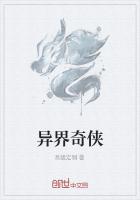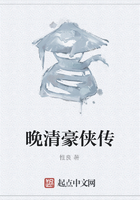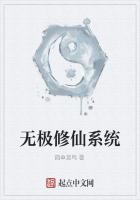About the close of the last century several of the Northern sovereigns took a fancy for travelling. Christian III., King of Denmark, visited the Court of France in 1763, during the reign of Louis XV. We have seen the King of Sweden and Joseph II. at Versailles. The Grand Duke of Russia (afterwards Paul I.), son of Catherine II., and the Princess of Wurtemberg, his wife, likewise resolved to visit France. They travelled under the titles of the Comte and Comtesse du Nord. They were presented on the 20th of May, 1782. The Queen received them with grace and dignity. On the day of their arrival at Versailles they dined in private with the King and Queen.
The plain, unassuming appearance of Paul I. pleased Louis XVI. He spoke to him with more confidence and cheerfulness than he had spoken to Joseph II. The Comtesse du Nord was not at first so successful with the Queen.
This lady was of a fine height, very fat for her age, with all the German stiffness, well informed, and perhaps displaying her acquirements with rather too much confidence. When the Comte and Comtesse du Nord were presented the Queen was exceedingly nervous. She withdrew into her closet before she went into the room where she was to dine with the illustrious travellers, and asked for a glass of water, confessing "she had just experienced how much more difficult it was to play the part of a queen in the presence of other sovereigns, or of princes born to become so, than before courtiers." She soon recovered from her confusion, and reappeared with ease and confidence. The dinner was tolerably cheerful, and the conversation very animated.
Brilliant entertainments were given at Court in honour of the King of Sweden and the Comte du Nord. They were received in private by the King and Queen, but they were treated with much more ceremony than the Emperor, and their Majesties always appeared to me to be very, cautious before these personages. However, the King one day asked the Russian Grand Duke if it were true that he could not rely on the fidelity of any one of those who accompanied him. The Prince answered him without hesitation, and before a considerable number of persons, that he should be very sorry to have with him even a poodle that was much attached to him, because his mother would take care to have it thrown into the Seine, with a stone round its neck, before he should leave Paris. This reply, which I myself heard, horrified me, whether it depicted the disposition of Catherine, or only expressed the Prince's prejudice against her.
The Queen gave the Grand Duke a supper at Trianon, and had the gardens illuminated as they had been for the Emperor. The Cardinal de Rohan very indiscreetly ventured to introduce himself there without the Queen's knowledge. Having been treated with the utmost coolness ever since his return from Vienna, he had not dared to ask her himself for permission to see the illumination; but he persuaded the porter of Trianon to admit him as soon as the Queen should have set off for Versailles, and his Eminence engaged to remain in the porter's lodge until all the carriages should have left the chateau. He did not keep his word, and while the porter was busy in the discharge of his duty, the Cardinal, who wore his red stockings and had merely thrown on a greatcoat, went down into the garden, and, with an air of mystery, drew up in two different places to see the royal family and suite pass by.
Her Majesty was highly offended at this piece of boldness, and next day ordered the porter to be discharged. There was a general feeling of disgust at the Cardinal's conduct, and of commiseration towards the porter for the loss of his place. Affected at the misfortune of the father of a family, I obtained his forgiveness; and since that time I have often regretted the feeling which induced me to interfere. The notoriety of the discharge of the porter of Trianon, and the odium that circumstance would have fixed upon the Cardinal, would have made the Queen's dislike to him still more publicly known, and would probably have prevented the scandalous and notorious intrigue of the necklace.
The Queen, who was much prejudiced against the King of Sweden, received him very coldly.
[Gustavus III., King of Sweden, travelled in France under the title of Comte d'Haga. Upon his accession to the throne, he managed the revolution which prostrated the authority of the Senate with equal skill, coolness, and courage. He was assassinated in 1792, at a masked ball, by Auckarstrum.--NOTE BY THE EDITOR.]
All that was said of the private character of that sovereign, his connection with the Comte de Vergennes, from the time of the Revolution of Sweden, in 1772, the character of his favourite Armfeldt, and the prejudices of the monarch himself against the Swedes who were well received at the Court of Versailles, formed the grounds of this dislike.
He came one day uninvited and unexpected, and requested to dine with the Queen. The Queen received him in the little closet, and desired me to send for her clerk of the kitchen, that she might be informed whether there was a proper dinner to set before Comte d'Haga, and add to it if necessary. The King of Sweden assured her that there would be enough for him; and I could not help smiling when I thought of the length of the menu of the dinner of the King and Queen, not half of which would have made its appearance had they dined in private. The Queen looked significantly at me, and I withdrew. In the evening she asked me why I had seemed so astonished when she ordered me to add to her dinner, saying that I ought instantly to have seen that she was giving the King of Sweden a lesson for his presumption. I owned to her that the scene had appeared to me so much in the bourgeois style, that I involuntarily thought of the cutlets on the gridiron, and the omelette, which in families in humble circumstances serve to piece out short commons. She was highly diverted with my answer, and repeated it to the King, who also laughed heartily at it.















